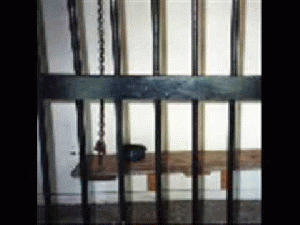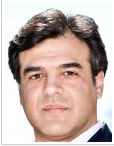Reprinted from Reader Supported News

Wrongful Conviction -- a travesty of justice.
(Image by Queen Ifama Uchefuna, Channel: Queen Ifama Uchefuna) Details DMCA
There is a reason why most of the exonerations have come from two locales. District attorneys in Brooklyn, New York, and Harris County, Texas, have begun long-term reviews of questionable convictions, actions that are being watched by prosecutors and defense attorneys across the country. With 156 death row exonerations since 1973, according to the Death Penalty Information Center, this is a problem that must be addressed.
The National Registry of Exonerations report stated further that 42 of those exonerated in 2015 had pleaded guilty, a glaring indication that the current system of seeking plea bargains simply isn't just. Indeed, Propublica found that 98.2 percent of all federal cases end in conviction, with nearly all of those a result of plea deals.
Why would an innocent person take a plea? Really, there is no alternative. First, the government uses a technique called "charge stacking." Have you committed an actual crime? Be prepared for multiple charges, including a lot of "throw-away charges," like obstruction of justice or making a false statement. In addition, the government will likely levy multiple charges against you for the same crime.
The point is not necessarily to convict you on everything, although prosecutors are perfectly happy to do that. The point is that prosecutors will eventually offer you a deal. Take a plea to one count and the others will be dismissed. It's a negotiating ploy. But for the accused, the question is this: Even if you are innocent, should you take a plea and do a couple of years in prison or should you try your luck at trial, knowing that almost no defendant wins in court? Almost everybody takes the deal.
After I blew the whistle on the CIA's torture program, the Justice Department charged me with violating the Intelligence Identities Protection Act. I had confirmed the name of a former CIA colleague to a reporter who wanted to interview him for a book. The name was never made public, but I shouldn't have done it. Still, I had no criminal intent and there was no harm to the national security.
But that didn't matter. The government added three espionage charges, as well as a charge of making a false statement. They threatened additional charges of making a false statement and obstruction of justice. Of course, I hadn't committed espionage. Nor had I made any false statements. But that didn't matter. Why risk a trial when you can just force a defendant to take a plea?
In the end, I took a plea to the initial charge. Everything else was dismissed. I was sentenced to 30 months in a federal prison. If I had gone to trial and had been found guilty, I was looking at 45 years. Realistically, I would have been sentenced to 18-24 years. Either way, I would have likely died in prison.
That happens every day in America. So it should be no surprise that innocent people are in prison as a result of pleading guilty to crimes they didn't commit. The work of the Brooklyn and Harris County district attorneys should be lauded. But innocent men and women shouldn't have to rely on the isolated prosecutor with a conscience for justice. Justice should mean justice.
Reader Supported News is the Publication of Origin for this work. Permission to republish is freely granted with credit and a link back to Reader Supported News.





